Don't wanna be here? Send us removal request.
Text
Doris Cruz Extra Credit The Great Gatsby
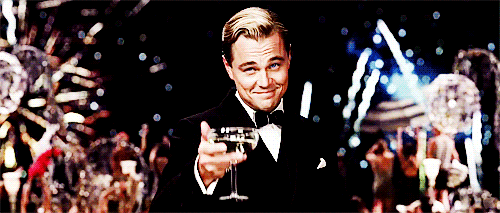
The Great Gatsby is one of the all time great American classics by F. Scott Fitzgerald and the newest movie adaptation did not do the book justice or the era. In some parts it was a good depiction of the roaring twenties and the prohibition which were two topics we discussed over the course of the semester. There was the ban on alcohol which drove just about everyone to alcoholism and there is a line in the movie that mentions it being cheaper which is not accurate, at least not for the beginning of the prohibition. Some other things apart from alcoholism that were mentioned were that people sometimes ended up needing psychological help because of the development of insomnia, anxiety and sudden bursts of anger. Nick Carroway, the narrator and main character mentions how he started off as a writer but start to take up accounting and stocks. Wall Street boomed in the 20s and everyone was investing in the stock market.
Other parts that were more historically accurate was the fact that because there was such an economic boom there was a lot of new money, people like Jay Gatsby and these people usually acquired this money illegally in his case he was a bootlegger. Everyone was also about having a great time and that’s where Gatsby’s extravagant parties came into play and the fact that woman were also getting more rights like the right to vote so they felt more free and had the tendency of being less conservative in this era. This is portrayed a lot with Tom Buchanan and his trashy mistress where there is just no shame there. But the epitome of how woman felt more entitled was portrayed by the character Jordan.
This film was meant to be more 21st century friendly therefore there were a lot of historic context that just didn’t fit back in that time period such as the clothes they were wearing in this film or the fact that there were interracial relationships. That was definitely frowned upon in those times. Plus there is one scene where the men are at a bar and the flappers dancing are colored women and they do not have the thin stereotype of the era.
I would say that overall this adaptation of The Great Gatsby does not represent history as accurately as it could have but it still is a great movie to somewhat get the sense of life in the 20s.
1 note
·
View note
Text
Doris Cruz Extra Credit The Butler
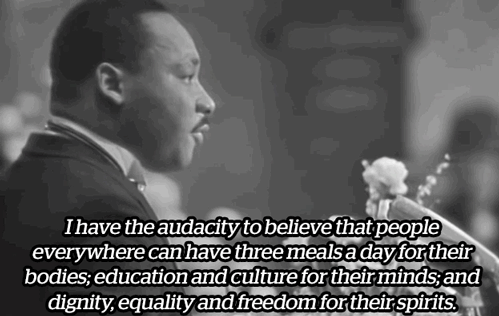
I have chosen the film “The Butler” to depict a time an history that we are all very familiar with and learned about over the time in this course. This is the time before, during and after the civil rights and equal rights movement when racism was at its peak and blacks were cotton pickers on plantations in the South or served the families inside the houses. This movie is based on a true story of Eugene Allen, the Butler that served for eight presidents in the White House. The movie however, changes the names and certain details of the events such as the main characters name Cecil Gaines and his family.
For the most part the movie is historically accurate. It briefly shows what life was like for slaves on the plantations and how their masters could treat them any which way. There is a specific scene when Cecil was a young boy and he was working the fields with his mother and father. The master comes and takes the mom away to a shack and you can hear her being beaten and raped. Afterwards, Cecil father approaches the master and gets shot. A very powerful quote from the movie that Cecil’s father says when he stopped his son from running after his mother was, “Don’t you go after the master, this is their world we just live in it.” I think this was a pivotal point because even though slavery was abolished, many of these former slaves stayed because otherwise they would not have a way of living anyhow. The blacks were the inferior race and they had nowhere near the benefits they should have as U.S citizens.
Other parts of the movie that were historically accurate happened after Cecil left the cotton farm and went to find work elsewhere. He worked at a bakery for a while and there he met a man that helped him move up to working in a hotel where he came across many politicians and important people in society. Another point that really stuck out to me was the fact that the blacks who were serving had this mantra that “The room should feel empty when I’m in it.” In other words they were only there to serve, they only speak if spoken to otherwise they should be quite and not react to anything said at all. From that job he was able to work as a Butler at the White House where he served for 8 administrations. The movie talks about the Eisenhower Administration in 1957 and how he sent troops to Little Rock, Arkansas to keep peace during the integration of the schools. Another quote by Cecil “It’s the first time I’d seen a white man stick his head out for us.” Eisenhower was played by Robin Williams and the movie did a good job at portraying how sometimes the president’s hand is forced in decisions he does not necessarily want to make. Then there was the Kennedy administration in 1961. During this time so much happened and it shows how the Kennedy’s treated not only Cecil but all of the staff with so much respect and they were very close which showed a lot about him as a man. This time was also when the Freedom Riders started and Cecil’s son was one of them. The movie showed the hate that was present if “colored” people sat outside of their zones in public places and how owners refused to serve them, they were defiled and even arrested. The KKK also made an appearance and how that was an organized hate crime against all blacks. The Johnson, Nixon and Reagan administrations were also mentioned ending with Cecil being present for the Obama Administration.
Some of the other historic figures and groups mentioned that were historically accurate was the movement of the Black Panthers and all the “black power” associated with it. Then of course there was mention of Dr. Martin Luther King Jr. and Malcolm X. Personally, I feel like this movie stayed true to history throughout and it was a very in depth story that allowed us, the audience, to see so much of what was going on in those times through different eyes.
I also want to share some quotes that stood out to me in the movie:
“Darkness cannot drown out darkness. Only light can do that.”- MLK
“Any white man could kill any of us at anytime…the law was the law, and the law, was against us.”
y")G�Ӝ�
0 notes
Text
Doris Cruz Post #9 Reflection
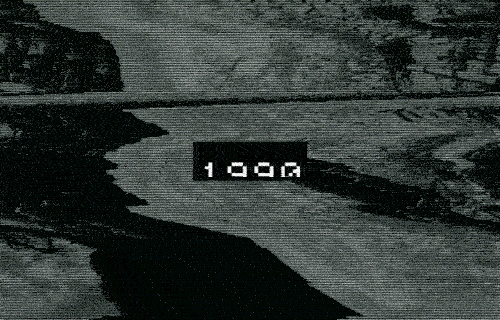
As the semester comes to a close I can say that this course was definitely one of the more unique history classes I have ever taken. For every topic we learned there was an example using media clips or other points of reference that really made the material worth remembering as opposed to just memorizing it for a test. This way of teaching actually helped me remember what we learned and provided a more interesting outlet for those people who do not particularly enjoy history. I do believe that I added to the previous background of certain parts of history such as wars that just went more in depth in this course.
I suppose that a topic I would have liked to learn about in more depth would be the roaring twenties because I have always been interested in the time period and I feel like so many fundamental changes happened in our country during those times.
The book that I was recommended to read was The Book Thief by Markus Zusak. It is a compelling story based in Germany briefly before World War II. Although I have read and seen many stories portrayed about the Holocaust this one is told from a different perspective of a child on the outside looking in. Although Liesel is so young she has already experienced so much loss what with her parents and then having to endure the loss of her brother. The fact that she can find comfort through learning how to read and learning the power of the written word, I think is one of the most powerful points of this story. She befriends the jews that her foster family Hans and Rosa Hubbermann, hide in their basement and basically retells everything they all experienced together during that war.
I think that I never actually considered looking into popular media for accurate recounts of history but in this class I have realized how helpful that can be and it has helped me learn much more than I thought I would.
0 notes
Text
Munich Extra Credit- John Schlueter
Munich
The following film doesn't directly connect to any of the topics that we studied in class, as it was in 1970, but it does show us what has happened and relates to terrorism at any part of history. The movie is about the dealings of Black September, where a group of Palestinian nationalists kidnapped and killed 10 Israeli athletes from the Munich games. A group of five guys from Israel were ordered to kill the group of Palestinians that were a part of Black September. First they travelled to rome and they were to kill their first target. They are successful, and then the next target is in an Arab country, who is under strict orders not to kill in an Arab country. They then travel to cyprus and kill him by placing a bomb under his bed. The movie keeps going along the line of the assassinations in the organization, and the man who is a specialist with bombs, he questions the morality of the assignment and then quits. The main character then reunites with his family. his paranoia is extreme, yet he meets for lunch, and the movie ends, as they reminisce over the 9 out of 10 members killed, adding that the last died in 1979. It shows us, that thought history, that assassinations never turn out to be the way we want or have anything positive. Look at what we learned with Lincoln and Booth, it didn’t end the way that John would have liked it to be.
My film is somewhat historically accurate, specifically with the way the Black September is portrayed, it is done so in a manner that shows the true history behind a stupid and cowardly act. It shows conspiracy behind the side of the Palestinians, but also shows what was done and why. The part of the movie that leaves me puzzled is how they go about assassinating these men, yes they are all killed, but none of this can be considered factual, because everything had to be kept under lock and key, no ties to Hassad, or his regime, and if there was, this would cause war between Israel and Palestine, two nations that haven't ever been the best of allies. Their journey was left completely open and allowed for the director and writer to have fun with it.
In my opinion, the movie was historically factual, it allowed for the Black September to be appropriately portrayed and the assassinations to go in chronological order that they happened in real time. The movie gives proper background to a topic not widely known by people today. The title Munich, really doesn't lead one to believe that it would be about something that happened in Munich, rather it is about the Munich games, and the events following.
This film doesn't historically change the way the event happened, because it was about the assassinations of the Palestinians rather than what the Palestinians did. It is a great plot that allows the history of the event stay intact, but to give a context and conclusions to what their actions ended up doing.
https://www.youtube.com/watch?v=o0fmQTS_ETw
0 notes
Text
Sean Gulla Post 9
After completing this course, I feel as though my eyes have been opened to the real history of America. This course offered a much more in-depth approach to the most important events in American history, as opposed to the traditional model of education where the entirety of American history was covered in a very loose retelling. The specificity of the course allowed me to engage in topics much deeper than before, which allowed me to appreciate the topic more than I had done so previously. This greater interest in the topics discussed manifested itself in longer study periods, if only to satiate the desire to learn more.
Specifically, our online based discussion were entirely refreshing to take part in, as they kept me informed on international affairs and they allowed me to see an assortment of opinions on it. I feel like these discussions prevented an echo chamber of opinions to occur, where whatever the teacher’s opinion is dominates any in class discussions. Also, the online discussions focused on sensitive material usually, preventing stagnating opinions on topics which have been discussed to death. To clarify, topics that are inherently vague or have a morally superior opinion such as, say, slavery, were omitted making the discussions quite interesting.
The surprising chapters in this course were the ones that focused on the Native Americans, because of how little I knew previously. I had always thought the interactions between Americans and Native Americans were short exchanges with pioneers with the Indians largely trying to separate themselves from conflict, but after our discussions on it I see now that the Indians had actual lengthy battles with the American armies, and actively tried to put up a resistance to it. Looking back, my knowledge of American history has been greatly expanded because of participation in this course.
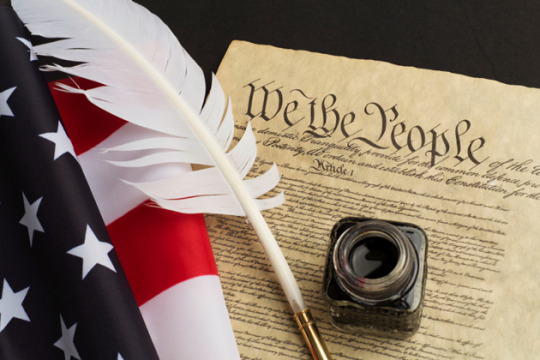
0 notes
Text
Nghia Le Post #9
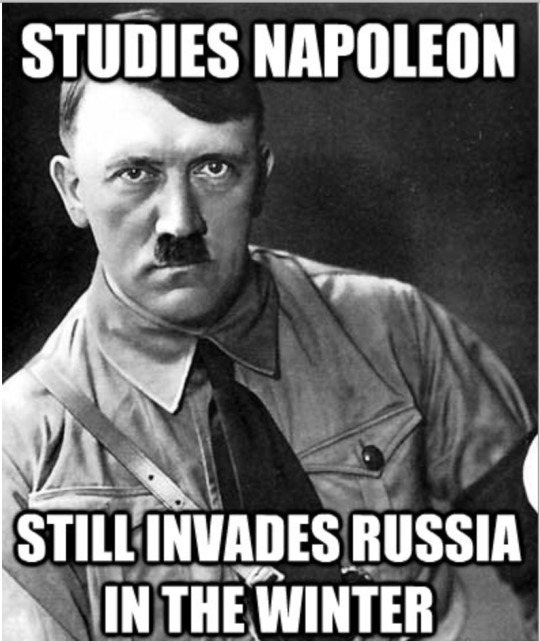
The only history class I’ve taken prior to this class was AP U.S. History in high school. My teacher covered just about everything but even towards the time of the AP exam, I still didn’t feel like I knew this country’s history at all. All I knew was several very specific answers that could be given for only several specific questions, and a few facts here and there. The professor taught in way that I was used to seeing in all history professors. He just crammed facts day after day. It wasn’t until I took this class, a class that isn’t centered on a big test, that I could actually care enough to see history as a big interesting story instead of facts I definitely want to and will throw out after every exam. Now as the class reaches an end I can say I actually know what has happened to and with this country from the beginning – from at least a semi-broad sense.
If given the chance to explore one topic in American history in greater depth, I would choose to learn about the Cold War. Not just the U.S. involvement in it, but the entire war in general. When it comes to history, I’m really only interested in war and conflict. Having learned so much about WWI and WWII already, I’d like to learn about a more recent one and to be even more specific: the Vietnam War and the U.S. involvement in it. The reason why is because I’m Vietnamese and I feel like I have a slight obligation to know about probably the only war that involves Vietnam. My grandfather fought in Vietnam War but he doesn’t like to talk about it at all. The fact that he won’t tell me about it makes it seem interesting.
0 notes
Text
Colin Toth Extra Credit #2
Extra Credit #2
The movie I watched was called Red Tails. It’s about the Tuskegee airmen pilots that served during World War II. The movie starts out at their air force base. It keeps its focus on a few of the officers in the group of pilots. At first the airmen are flying old hand me down planes and flying the least involved missions 100 miles behind enemy lines. This is because the Tuskegee airmen are a group of all negro pilots. The movie shows that at that point in time the military believed that negro troops to be mentally and physically incapable of what the white men did at the time. The Tuskegee airmen were determined to prove everyone wrong. In the movie the Tuskegee airmen had the help of a high up general that gave them the chance to prove themselves. They finally got the chance to protect a group of bombers. There orders where to stay with the bombers at all costs and not go chasing glory like the other pilots do. They did what they were told and put the bombers lives above their own. This helped save many more bomber planes then any other squadron and the military generals started to notice. Through the course of the movie they slowly proved themselves more and more. Eventually they got the best aircraft the military owned, P-51 mustangs. As their record grew other military members started to respect them more and more. They became know as people you want to fly with versus people you don’t. Then in their final mission they got the biggest chance they have had yet. They got the chance to escort bombers all the way to the center of the German army, Berlin. In this battle they encountered the first jet powered aircraft ever made. The jets were way faster and better than the Tuskegee planes, but they did their jobs anyways. The Tuskegee airmen were so skilled that they were able to bring down the jet planes and had the first victory ever against them. This was an amazing victory for them. The Tuskegee airmen went down in history for their courage, determination, and skill in the air. They were highly decorated and became highly respected for all of their efforts.
The film connects to topics that we discussed in the World War two section, even though we covered it briefly. The Tuskegee airmen where an instrumental part of the war. The film was mostly historically accurate, but it did have a few major flaws unfortunately. The movie said that there were a lot less losses for the airmen and the bombers than there actually where. Also, the airmen were not the first to shoot down a jet plane but the movie portrayed it that way. I still believe it was a work of good history because it effectively portrayed the struggles that the Tuskegee airmen had to go through. It effectively showed that they were fighting for their country and putting their lives on the line, but still being discriminated against by fellow soldiers. I also believe exaggerating the movie a little bit was to help improve the historical context. Back then people discriminated against the airmen, so I feel the director had to exaggerate a little bit to show that they really did accomplish a lot. That might not of come across correctly if they had given the actual statistics (which they did show at the end of the movie). So, today people are able to see the movie and see that the Airmen are truly special. I have been honored to meet a few of these pilots and talk to them first had. Their stories are absolutely fascinating and this movie correctly displays what it needs to in order to give them the respect they deserve. These men are truly American Hero’s and this movie gave them the recognition they deserve.
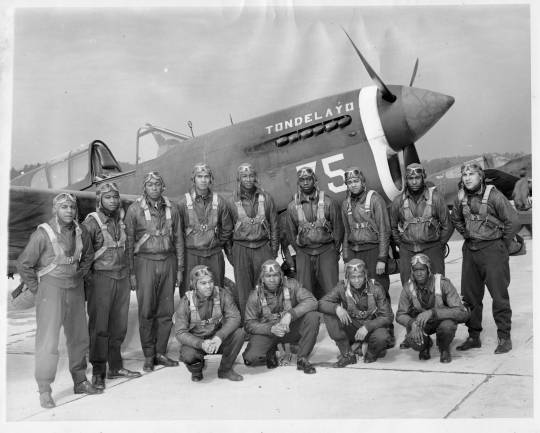
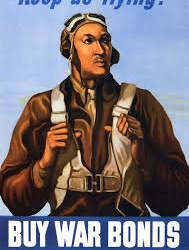
0 notes
Text
Tia Ball, Extra Credit 2; October Sky (1999)
The film October Sky is a biographical film that centers on Homer Hickam Jr. and his efforts to succeed in rocketry, despite generational views and stereotypes. The main focus of inspiration for Hickam in both the film and real life was the launch of Sputnik by Russia in 1957. This said launch sparked an interest in Hickam at a young age, and the film adaptation of Hickam’s story attempts to portray his attempt at achieving his dreams.
The film, despite the major events of Hickam’s life being relatively accurate, does not go without mistake. While Hickam is said to be 17 years old in the film when he gets involved with rocketry, he was actually 14 when he first saw Sputnik in1957 and became inspired by it. He and five other boys tested and built rockets, while in the film (partly for cinematic and simplistic reasons) said five were condensed in characters. This does not entirely take away from the story portrayed however, as the film’s main themes rely on family ideals and chasing dreams. As far as family goes, the movie misnames Hickam’s father John when in fact his name was Homer Hickam, Sr.
Both in real life and in the movie Hickam’s father worked laboriously in the mines, yet the movie tends to dramatize moments of Hickam Jr.’s life. In the film, it explains that although his heart lies with rocketry, he ends up dropping out of school to help with mining (due to his father’s injury). This apparently was not the case, as Hickam never dropped out of school and never went into the mines. He stills tested and built rockets, even though many were against it and wanted him to win a scholarship in a different way (more like his brother who got a scholarship through football). However, this idea is very societal driven as it expects someone to live up to standards already set and the notion of exceeding those standards is almost impossible to do. For instance, the notion that a 14 year old, from a small town in West Virginia, started with a dream of building a rocket to yearning after a win at a national science fair (in 1960) seemed utterly wasteful when something more within norm was achievable.
However, Hickam pushed on – both in life and in the film adaptation. While the film did choose to over present certain concepts, such as Hickam meeting his hero although in reality he never did, it still holds value as it expresses the relentless nature our dreams and desires can take out – and how the sky is not the limit even in cases when we feel as though the world is against us.
When political advocates feel left out of the majority, they do not give up. They push forward, and grow and acknowledge the learning curve. Politics is very similar to the struggles even a young man faces, because while the execution may be lacking – the ideas are there, and the support is what is needed to keep carrying on. This is relevant to many different historical themes, it all depends on the perspective taken. On one hand, there are those who are conservative who only wish for what has worked in the past, and on the other hand, there are those who dream bigger then themselves and think outside the box. As we have touched on many times throughout class, there is always an “us” and a “them”, until at least a middle ground of understanding is met.
October Sky does a decent job at pulling at generational stereotypes that seem to still apply today, and that relevancy alone makes it a good film (despite not being the most accurate of films, at least in terms of small details).
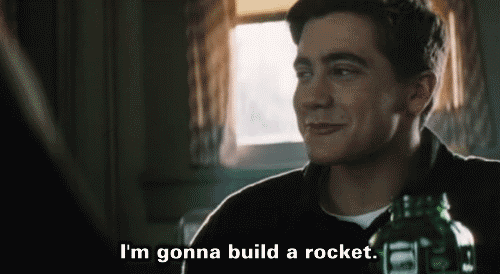
0 notes
Text
Hayley Smith Extra Credit #1
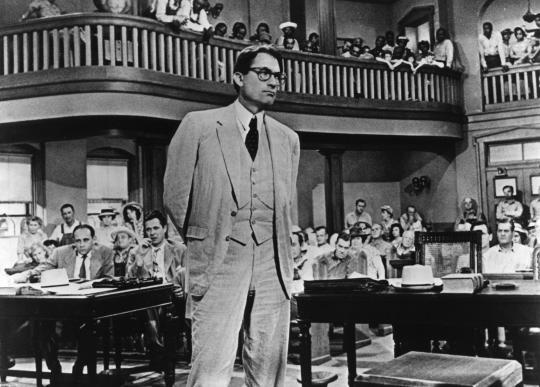
The film To Kill a Mockingbird was released in 1962, based on a novel written by Harper Lee. The film takes places in Maycomb, Alabama, a rural town, in the 1930’s in the peak of the Great Depression. Atticus Finch is a lawyer and the father of Jem and Scout, all playing major roles throughout the film. While the film depicts a coming of age story of a young girl it also incorporates many other underlying themes and tones reflective of the history. The novel was written in 1960 during the Civil Rights Movement and acted as an eye-opening piece of literature that confronted issues of racism, segregation, sexual taboos, and the unfairness of justice system: all topics discussed in class. The film was made shortly after the novel was written and portrayed the ugly truths of the United States history in a time of the evolution of social awareness and equality. Due to the time period it was created, the film showed the flaws of the ignorant intolerant white men and favored the innocence of Tom Robinson, an African American wrongfully accused of raping a white woman. The film ignited a spark in the Civil Rights Movement to never return to a time period on inequality, mistreatment, and desensitization.
To Kill a Mockingbird illustrated an accurate portrayal of the time period exemplifying, most heavily, the issue of racism. For instance, the courthouse where Tom Robinson was tried only allowed for whites to sit on the main floor, forcing all other people to sit on a balcony. The courtroom scenes also exhibited the justice systems failures, as there was an all white jury, pre-determined perception of the story, and racist biases. The segregation continued, as the interactions between African Americans and whites were limited throughout the film and derogatory language was used when referencing African Americans. Sexual taboos were also prevalent in the film, as the intermixing of whites and African Americans sexually was forbidden and looked down upon. One kiss between Tom Robinson who is African American and Mayella Ewell who is white resulted in the lynching of a man. While there may have been some exaggerations and also being based on a fictional novel, the film was historically accurate and provided multiple platforms for issues of that time period. This film shows America in a time of negativity, intolerance, and ignorance that could be viewed as “bad” history. While To Kill a Mockingbird does not bring up positive issues, it is necessary that they are confronted and evaluated. This film offered Americans a medium to reflect back on their past mistakes and see visually the horrors of previous times so people can learn from them. The world today is completely changed from the 1930’s and it is because laws, social norms, and societies were challenged. “Bad” history is important to make the future a safer, established, and equal place. Without this part of history the world would not be as advance and tolerant as it is today and continue to grow.
0 notes
Text
Alexander Fisher Extra Credit: Bonnie and Clyde (1967)
Bonnie and Clyde is a film about the lives of outlaws Bonnie Parker and Clyde Barrow, detailing their paths of crime leading up to their brutal demise at the hands of the police. It was released in 1967, which was a time when the counterculture was still a growing influence in America; this is a crucial detail because the film was practically set to appeal to the younger audience by portraying Bonnie and Clyde as relatable anti-heroes. For example, there are multiple scenes that establish Clyde’s hatred towards the government, the banks, and the police. These scenes include him shooting a sign, which stated that the banks now owned a farmer’s property, stealing money from only the banks and not the farmers who were there, and shouting at a Texas Ranger for chasing him rather than helping the poor.
To elaborate, this film takes place during the Great Depression, which was not only a period of bank runs and financial panic, but also the time where the Dust Bowl devastated numerous farms, causing families to find work and shelter in another area. Additionally, this was a time when infamous bank robbers such as Pretty Boy Floyd and John Dillinger were running rampant in America, and the Barrow gang soon became a part of the chaos. Clyde was born in one of those poor families, and the film seems to imply that he resents the government for not helping him, his family, or other farmers climb out of poverty. This might be why he decided to rob banks, and after Bonnie joins him for love and excitement, their “adventure” begins.
Speaking of this duo, the film has both Bonnie and Clyde share a teenage mentality throughout the story, causing them to be less aware of the consequences of their actions. Examples of this include the scenes where they take pictures of themselves, send them to the press along with some of Bonnie’s poems, and casually tell others that they rob banks. There is also a scene where Clyde was robbing a store, but he did not understand why one of the employees tried to kill him when he did not harm anyone. It is clear that the employee did it because he assumed Clyde would shoot the cashier, but Clyde could only see the situation from his perspective. When they are running from the police in the last third of the film, they clearly show immense fear and regret, as if they had no idea that their crimes would result in this. Their childish thinking and reasons for rebelling against the law allowed the anti-establishment audiences of the late 1960s to sympathize and relate with them, even though they committed robberies and murders, and that was ultimately the film’s intent.
However, in order to appeal to the counterculture, the film needed to sacrifice the historical accuracy of its story. I mentioned how Bonnie and Clyde sent pictures and poems to the press, but that actually did not happen in real life. In fact, these items reached press at some point after their deaths. Speaking of which, the scene depicting their deaths also contain a hint of falsehood. The way they were ambushed by the police was true, for they did stop their car to assist a man whose truck was broken down, but the film shows Clyde leaving the car to help and implies that they were not armed when they were attacked. That was most likely done to make their deaths seem more tragic and ensure that the audience feels sorry for them, but in actuality, they were heavily-armed and they died while they were still in the car. In addition to these details, a few of the characters faced significant changes to reflect the intended goal. In real life, the Barrow gang had two other members, named Henry Methvin and W.D. Jones, but the film shows only one character. His name was “C.W. Moss,” and he shared traits from both Methvin and Jones. Texas Ranger Frank Hamer, on the other hand, was the most fictionalized of the characters, for the film portrayed him as a frigid policeman who sought revenge on Bonnie and Clyde for humiliating him at one point. This obviously allowed the audience to side with the outlaws instead of the authorities.
This is why I believe Bonnie and Clyde is a work of “Bad” history. The film changed the facts to reflect the rebellious 1960s culture in the same way that Pocahontas did to entertain children.
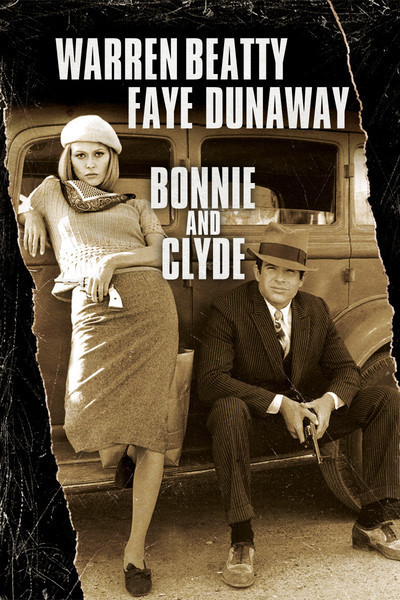
0 notes
Photo
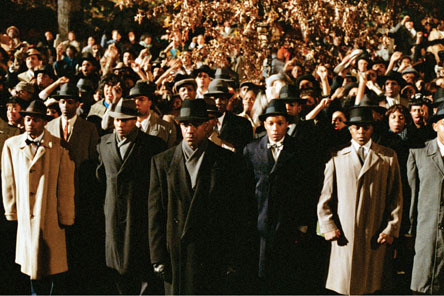
Jakayla Guillou, Malcolm X Malcolm X is a biographical epic of Malcolm X, one of the many legendary, controversial and influential African American leaders. Born Malcolm Little, his father was killed by the Ku Klux Klan. Malcolm became a small-time gangster where he committed a few crimes, including robbery. While in jail, he discovered the Nation of Islam writings of Elijah Muhammad. He preached the teachings when he was let out of jail, but later on goes on a pilgrimage to the city of Mecca, there he converts to the original Islamic religion and becomes a Sunni Muslim and changes his name to El-Hajj Malik Al-Shabazz. He is assassinated on February 21, 1965 and dies a Muslim martyr. This movie portrays a great leader in the civil rights era, along with Dr. Martin Luther King, Jr. The civil rights movement was a huge time in America and it is something that helped us become what we are today. The movie Malcolm X is mostly accurate to the real life events and facts of Malcolm’s real life, although there are some minor details that were not accurately conveyed in the movie. In the movie there are many facts that were correct and accurate and there were also many events that were not correct and in line with reality. In the beginning of the movie a group of clansman come to Malcolm’s home. At this time Malcolm’s mother was pregnant and the clansman left her alone, and left. In the movie it is mentioned that Malcolm’s uncle was lynched along with two of Malcolm’s father’s friends. In real life this is true to some extent. Malcolm’s uncle is lynched but the other two were unheard of. At a young age Malcolm sees racism towards him and his race. In the movie it is never specifically stated that he was killed by KKK members, in real life Malcolm’s father were killed by these people The court said that it was suicide. During Malcolm’s life in the movie, he became a borderline drug addict. In real life he was not as associated with drugs as the movie portrays. He falls in love with a white woman and then the drug phase starts. He is charged with breaking and entering when he is younger. When going to jail he says the real crime was not breaking and entering with the judge, the real crime was sleeping with a white woman. This shows the racism in the court systems even at that time. He does not continue to date the white woman because when he is in jail he confronted by a man who tells him to seek Allah because he is the god of black. In the movie and in real life Malcolm is harder on the women of the Islam population than the men. He tells of how women need to dress nicer and not act like prostates. This is all during the time Malcolm is a part of the nation of Islam. There are more minor inaccurate facts within the movie but, overall the movie was extremely close to the real life actions and events of Malcolm x’s life. Malcolm, just like many others, have made a huge impact on this nation to make it a UNITED nation.
0 notes
Text
Carly Jaze Post #9
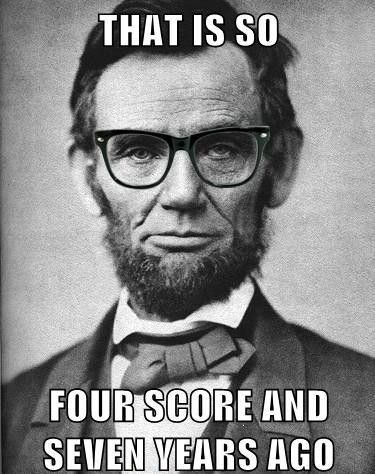
This course was different than a lot of the history courses that i have taken in recent years. Since high school I have been learning about American history more times than I can count. I think its hard to change people’s understand or really increase it once you have reached a certain point. I think that I have learned things this year that I haven't learned in previous years. There also was a difference in the teaching style this year that none of my teachers have done before. There is so much there is to cover with any form of history that anyone is bound to learn something new, and I definitely did. I think that the most interesting and lively time in American history is the early half of the 1900’s, during which a time in American where a lot was happening and changing, new inventions and different styles of living, growing, etc that there is so much to learn about it. I really enjoyed learning about the ways of the lives of the people during those times, how they adapted to change and reacted to wars, civil rights, and technology. I think this area would be something that i would really enjoy learning more about especially since most history teachers I’ve had tend to gloss over this area in America’s history.
My piece of historical fiction that I was given at the beginning of the semester was Sargent Peppers by the Beatles. I really like the album, I have listened to the Beatles long before I was given the assignment. I think that the album showcases who the Beatles are. Many young people during the time the Beatles were popular felt that they truly understood how they understood about how things around the world were happening. I think this album, The Beatles in general, were a great way to express peoples reactions to history. I think today we count on movies a lot more to show us how things were in history, we don't normally think of books, music, or art to show us the difference in times. I think if we were to stop relying on technology as much as we do, we would be able to refocus on thinking about how much we actually have changed from just 15 or 20 years ago.
youtube
0 notes
Text
Diana Kehoe Extra Credit #1
The movie I chose to watch for extra credit is called Life Is Beautiful. It is an award winning movie filmed in 1997 about the holocaust. It is about a charming italian jewish man named Guido who gets sent to the concentration camp with his wife and son. Wanting to keep his son from knowing the evil truth, he convinces him that it is all a game. Both his wife and son survive the camp, but Guido does not. Unfortunately, he dies in an attempt to rescue his wife.
While watching this movie, I could definitely see a correlation between what it depicts and what we have discussed in class. We have talked about the early signs of anti semitism in Europe and how it slowly escalated into more extreme things. This is shown in the movie when we first see jewish shops being vandalized, and other shops saying they will not allow jews inside. Later on in the movie, we see jewish citizens being forced into trains that take them to the concentration camps where many of them are forced to face their deaths.
I believe this movie is overall historically accurate. It is true that jewish shops were vandalized. It is also true that jewish men, women and children were taken to the camps. While entering, they show that no elderly people were allowed in. In the camps, we see how brutal the work was. The main character Guido had a very hard time doing the heavy lifting demanded of him. It also depicts the reality of harsh deaths by gas chambers and crematoriums. Many small but accurate details were shown, such as striped pajamas and tightly packed trains. At the end of the movie, the american troops take over the camp and let the jews free. It is true that one of the Sicilian camps was taken over by an allied force, so it is likely something like this had happened.
On the other hand, I feel that the movie could have done a better job of portraying the toll the camps took on the jews within it. It did not show how they starved and rarely ate. Also, I think during the real holocaust the guards would have been much more strict. For example, there was a part in the movie where Guido teaches kids to say the word “thank you” in Italian, though he was not supposed to talk to them. The guard let him off with a warning but in reality I think she would have punished or killed him.
The historical context of this film definitely had an impact on it. Not much of world war 2 was depicted in this film, and that’s likely due to the time period it was filmed during. In 1997 there were no major wars being fought. If it was filmed in the 1960s during the Vietnam war, they may have shown more of the american troops. This would help them gain support by depicting them as the heroes fighting the nazis and saving the suffering jews.
In my opinion, this is a good work of history. I like how the first half of the movie is cute and romantic. You get to see Guido live his life and win over the woman he wants. In the second half of the movie, things take a turn for the worst when they are sent to the camps. This portrays how life as they knew it was suddenly over for jews when the holocaust began. It also shows that the jews did absolutely nothing to deserve genocide. They were just going about their daily lives when everything changed.
Overall, this movie is both heartwarming and heartbreaking all at the same time. I did not expect a movie about the holocaust to be funny, but this one had some amusing scenes in it. It is also a very sad movie. Be prepared to watch this movie with a tissue box. I am glad I watched it and I would definitely recommend it to a friend.
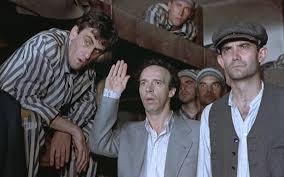
0 notes
Text
Tumblr Post 9- John Schlueter
AMH 2020 was one of my favorite history classes, probably my favorite. It was on of the most enjoyable… That may be in part of the fact that it is one of the first that I showed up to almost every class, but that is beside the point. I have had some pretty poor experiences with history, whether it was a lecture with monotone, something that had too many papers or a mixture of both. I thoroughly enjoyed your class, the videos and your passion for the class really stimulated the learning curve. I do think the tumblr posts helped mix current events with history. I do think that the class could have attendance taken, because it was easy to notice the way people came and left as they pleased. I believe that this class has given me a different outlook on history, that it is much more involved in everyday, rather than a thing of the past.
In watching Django Unchained, the movie I was recommended, i realized that there was absolutely no historical significance. It was a story, it wasn't true, the only things factual is that the tyrants of the south were brutal toward their slaves. One scene that stood out to me was a fight between two slaves, where the two slave owners wagered money. It wasn't that one fighter could tap out, it was more the fact that it was to the death, and brutality such as this is sick. I know this is something that may well have happened, but it is gruesome.
I wish that we went more in depth with further topics, such as the Korean or Vietnam wars, both great battles, along with the crisis in the middle east, and if we had enough time, to even cover current problems, but in more depth.
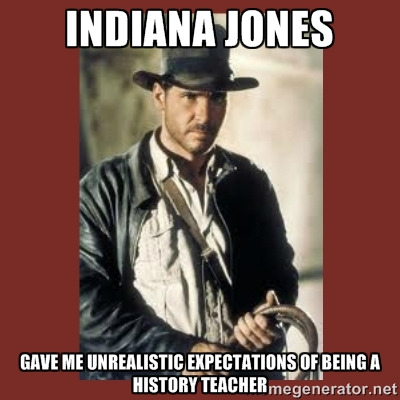
0 notes
Text
Diana Kehoe Tumblr Post #9
Throughout this course, I have learned much more about history than I ever had before. I am so glad that I took it this semester. I really like the way that you taught it. I can tell that you have a lot of passion for the subject which makes the lectures interesting. I also liked your use of informative and funny youtube videos. In addition, our tumblr post forced me to learn and think about political events going on that I never really paid attention to. This is good thing, as I’m eligible to vote now.
While taking this course, my understanding of history has changed definitely changed. We didn’t only cover events in history, but we went over them in depth. This caused me to contemplate what had happened in a way I never did in previous history classes. Instead of just having terms to memorize, we explored different factors that affected events in history directly and indirectly.
If given the chance to explore one topic in depth, it would be the women’s rights movement. I am very fascinated by the success that it had. I am interested in the factors that may have influenced it, such as the wars. I think it is definitely an event that changed the course of history and the daily lives of women everywhere. Also, I would like to study the improvements in technology over the decades. There are many useful inventions from steamboats to washing machines. Many of these technological advances changed the world, for better or for worse. I am sure that many of the wars would have turned out different without improvements in weapons. The present day would not be the same without these advances, which fascinates me.
In the beginning of the semester, I was advised to watch the disney movie called Pocahontas. I had not seen it since I was a child, so now I was watching it with a whole new perspective. I felt that it did not accurately portray historical events and the culture of native americans. This is a lighthearted disney movie but in reality times for natives back then were much more brutal. They had their land invaded by the europeans and their resources taken. Not only that, but there were many brutal wars fought against the whites. Thousands of Natives were wiped out or sent to reservations. Clearly, the pain inflicted on them is not portrayed in the movie. I now realize that some of what is portrayed in the media often historically inaccurate.
Ultimately, I learned much more from this course than I expected. It was unlike any history class I have ever taken before. I really like your teaching style and I’m glad I had you as my teacher. Thanks for a great class!
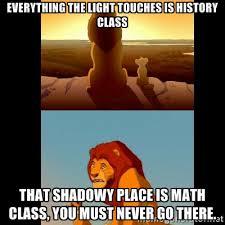
0 notes
Text
Extra Credit #2 - Mireya Ramirez
Name: Mireya Ramirez
Film Title: Letters from Iwo Jima
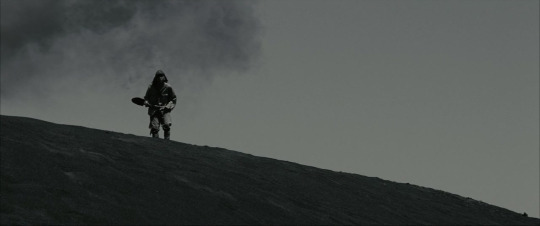
- How does the film connect to topics discussed in class?
We’ve discussed how the introduction of aviation in wars made a huge impact on how they were fought. Since soldiers could be attacked from above, they had to find ways to stay clear of them so they began to use trench warfare. This can be seen in the very beginning of the film, when Saigo is digging trenches along the beach before the Americans come to attack.
Also, the mentality of the Japanese that we discussed not too long ago was shown in the film many times. When Saigo was drafted as a soldier, the people who came to his house congratulated him for serving in the war with smiles on their faces, saying that he is honoring the country and the emperor knowing that he was most likely not coming back home. Then, during the ongoing battle, when Saigo and Shimizu escape from Suribachi and are discovered by Lieutenant Ito, he almost kills them for not staying and honorably dying with the rest of their fellow soldier by suicide. Their mentality is to die for their country no matter what, and Saigo and Shimizu instead escaped to live longer.
- How historically accurate is your selected film? (List factual errors, missed opportunities, and describe how it portrays a person or event.)
One factual error was that Iwo Jima was portrayed as an island that was inhabited by people. There is a scene where soldiers are passing by what looks like houses with people waving their flags towards the soldiers, and when the commander sees a small child playing nearby, he orders civilians to be evacuated. However, Iwo Jima is volcanic island with a high concentration of sulfur and almost no drinkable water, so it would be highly unlikely that people lived on it.
A missed opportunity was portraying the losses of the US during the battle of Iwo Jima since there were many people who lost their lives in the battle. Apparently, the US suffered more losses than the Japanese had in total, and while the film did show many times when the Japanese were firing shots at the Americans, I do not think it showed the amount of damage done to the Americans and instead showed the damage done to the land.
There was a small yet significant part when the battle was being fought in the film, and it was when Saigo was writing to his wife about how there was little to no food and water available for them, and he said that they had to do unbelievable things to get food. He was then sent to dig up some worms for food, and I think that this plus other small parts of the movie showed the hardships that the Japanese soldiers had to go through in order to barely stay alive during the 36 day battle.
One person I think the film portrayed well was Commander Tadamichi Kuribayashi, but as a commander and instead as a father who wrote many letters to his children and wife. After watching the movie, I read about him and how he would in fact add drawings with his letters. Much of the content in the letters from the movie seem to have been what he wrote about to his kids, from his worries about not fixing the kitchen floor before he left to when he was in the US and said that the “US should be the last country Japan should fight.” It was also true that he only ate as much as the rest of the soldiers, and asked to leave plates empty when there was not enough food. There was a scene at the beginning showing this as well, so I would say that the director did a good job showing certain aspects of who Kuribayashi was.
- In your opinion is this film a work of “Good” or “Bad” history? Explain.
I mostly think that it’s good, and it was interesting to see from a Japanese perspective instead of an American one. It was a movie that allowed the Japanese to show their problems they faced during World War II without a bias. It shows that the Japanese were also humans fighting to survive a war, and it also shows that there were soldiers who were tired of fighting and surrendered.
- Describe the historic context that the film was made in. How did this influence the way history is shown in the film. (i.e. could a film like The Birth of a Nation (1915) be looked at the same way today?)
Something that I think it surprising is the fact that they hired popular Japanese actors to play the parts of the Japanese soldiers and commanders, since a lot of the times (even now) directors usually choose Asian actors without worrying much about their nationality.
Also, the portrayal of the Japanese soldiers was different than it usually is in World War II movies, where they are perceived as ruthless and as the enemy. I think that it helped a lot that the writer of the film was a Japanese person who understood Japanese culture, so much of the film is accurate in portraying Japanese soldiers instead of using stereotypes that may have existed if it was written by an American writer.
#if hitler was alive he would erase the internet#panda socks are better than hitler#the actor who played saigo is an idol who i've heard of and it was cool to see him in this movie#that's supposed to be my personalized hashtag if the other two aren't
0 notes
Text
Carly Jaze Extra Credit Post The Aviator
The movie I choose to review was The Aviator directed by Martin Scorsese. This film depicts the life of Billionaire Howard Hughes, played by Leonardo DiCaprio, and his successful life in aviation, hollywood, and as a public figure. This film takes place during the 1920s to the mid 1940s, during the period of the second world war, the great depression, prohibition, the civil rights movement, and the rise of new hollywood. During the film you experience and notice all of these different aspects of the time period, especially the rise of new hollywood. One of Howard Hughes biggest successes was the movie Hells Angles, which is what the beginning of the movie is all about. You see changes in the film industry, like silent movies to talkies, different filming techniques, color film, are shown with the beginning of the film. You see innovations in the aeronautics developments, which was a big part of Howard Hughes life. During the film you start to understand that Howard Hughes has OCD, and how the world reacts to the disorder. Its easy to see that not many people understand how to deal with it, react to the situations, and help people with the disease feel normal in the world.
youtube
I think there are most of the things that the film portrays are pretty accurate with the time which it surrounds. There are some timeline technical errors in the film, a lot of things in the film that were smaller aspects; radios, airplane engine, microphones, cars, etc. were sometimes more modern than what they should have been at the time. A lot of these things would be hard to catch and for most viewers go unnoticed. Any movie that is made to portray a persons life is hard to accomplish but with this movie they were able to cover a lot of different aspects of his life and show how much he actually accomplished in his life.
I think that this film is a work of good history. I think this might be slightly biased because I don't normally watch historical films and I don't have a large field to compare them to. I think that they do a good job showing different areas of the time and what is happening in more areas than one. I don't think the time period necessarily is “good”, in that WW2 happens, there are still civil rights issues, and the great depression happened, but they really do try to show the different aspects of the 20 or so years the movie is centered around, and the lows and highs of Howard Hughes life.
This film was made fairly recently, only around 10 years ago and although we have made some advances in the film industry its not major changes like movies from 20-30 years ago. I feel they tried to make the film look like an older film and give the film the feel of the time period, which is something we would also try to do today. During the time the film was made we were fighting in Afghanistan so there is a possibility that could have influenced the war aspect of the film.
0 notes